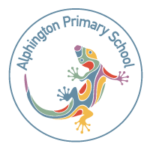Curious & Skilled Mathematicians
Alphington Primary School is committed to developing a community of curious and skilled mathematicians. Our aim is to provide a rich, challenging, engaging and differentiated teaching and learning program that facilitates strong mathematical content knowledge across the Victorian Curriculum strands:
- Number and Algebra
- Measurement and Geometry
- Statistics and Probability
Sitting alongside the Mathematics curriculum that informs our teaching and learning are the four proficiencies:
- Understanding
- Fluency
- Problem-solving
- Reasoning
We explicitly teach students to develop these proficiencies, so that they can respond to familiar and unfamiliar situations by employing mathematical strategies and applying their understanding to solve problems efficiently. When opportunities to reason and make sense of mathematical challenges become routine, learners will come to associate such experiences with what it means to be a great mathematics learner.
At APS students engage in Mathematics in a variety of ways, including:
- tasks where students work individually, in small groups or as a whole class
- mathematical tasks where students use their understanding of the capabilities to justify and explain their thinking
- know and understand the Victorian Curriculum and aim to broaden students’ experiences through open-ended and hands-on learning experiences
- use High Impact Teaching Strategies to support the learning process
- inspire students by modelling mathematical strategies in multiple contexts
- think aloud when modelling mathematical concepts and problem solving strategies
- empower students through choice and authentic experiences
- explicitly teach skills appropriate for the age and developmental stage
- know our mathematicians' next point of learning and target these through evidence-based teaching strategies -teacher-led focus groups, conferences, group/partner activities and peer feedback and mathematical discourse
- ensure that the next point of learning requires further sophistication and complexity
- provide extensions and enablers for learning activities
- make learning visible, including problem solving strategies and what what good mathematicians do
- celebrate each and every student’s mathematical thinking and outcomes and provide timely feedback
- staff and students meeting regularly to create and review learning goals



